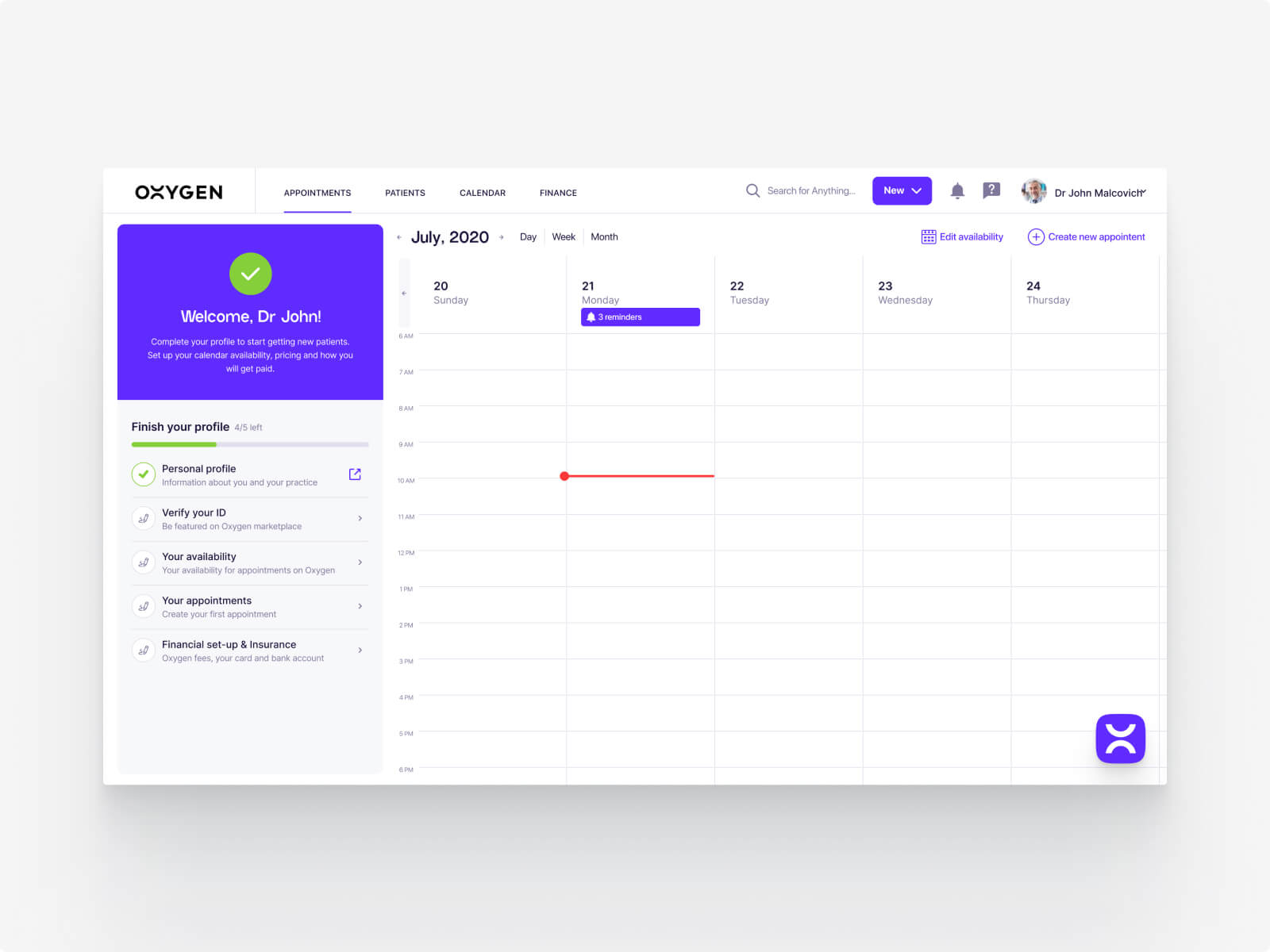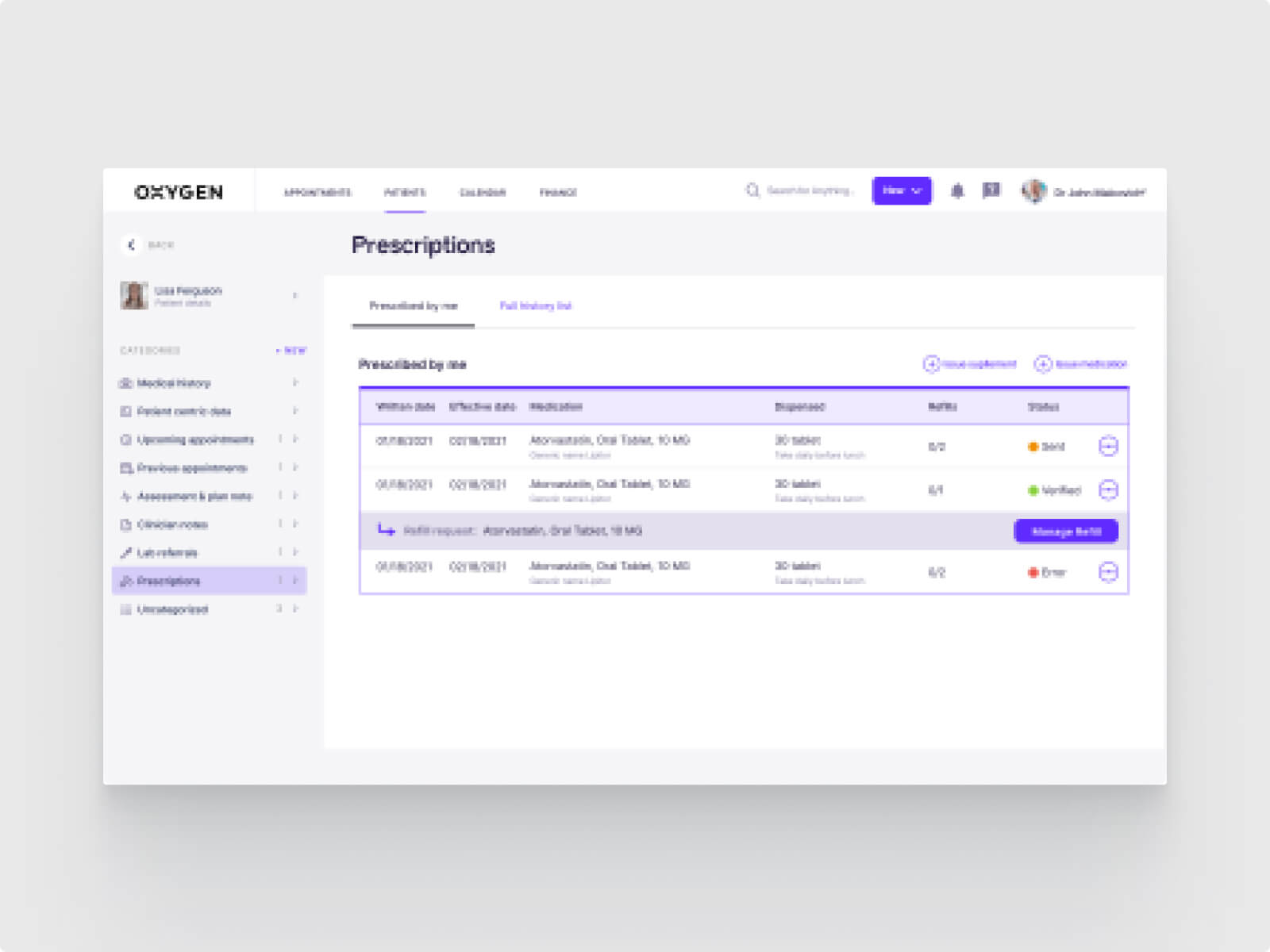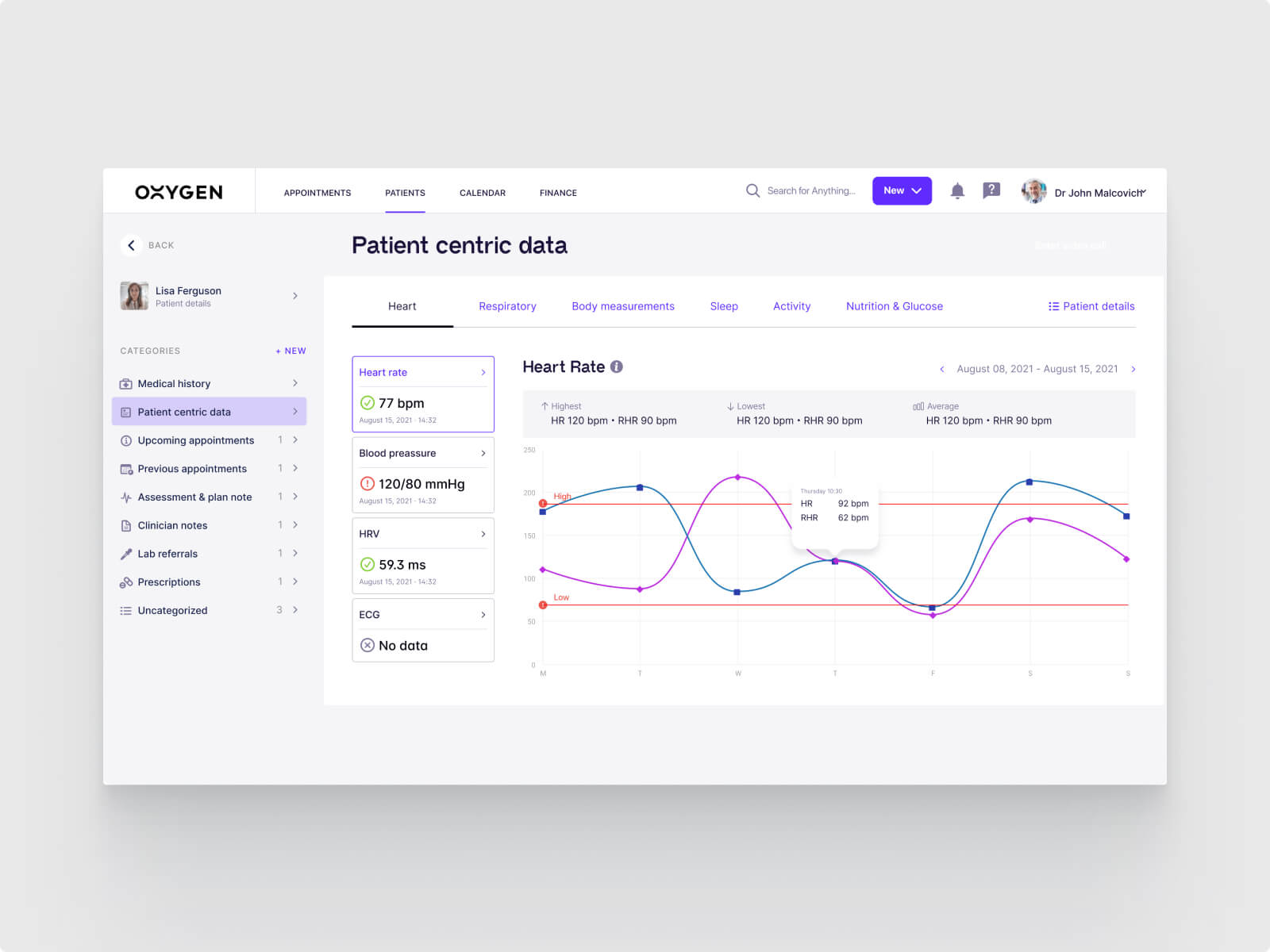Connecting patients and doctors with seamless digital solutions
Oxygen Healthcare
Tele-medicine Marketplace App UX UI design

Oxygen Healthcare is a digital medical marketplace that connects patients with doctors on demand, offering services like virtual consultations, prescription management, lab referrals, and claims processing. With a patient-side mobile app and a comprehensive marketplace of US doctors, Oxygen Healthcare aims to redefine the telemedicine experience by providing urgent care, complete access to medical histories, and prompt appointments through a virtual assistant.
Compared to competitors, the platform faced several challenges:
Complex navigation
Users found it difficult to locate and connect with suitable doctors.
Fragmented workflows
Managing lab results, prescriptions, and appointments was cumbersome.
Inefficient pre-appointment processes
Filling out medical questionnaires during appointments consumed valuable time.
The project aimed to:
Create a user-friendly platform that outperformed competitors.
Integrate telemedicine services like video calls, prescription management, and lab referrals.
Build a scalable design system for rapid development and future expansion.
Simplify user workflows while ensuring a seamless patient-doctor experience.
Understanding the Users
After conducting comprehensive research to identify user and provider needs, the following key insights were derived from user feedback and analysis:
- Patients prioritise seamless navigation for finding the right doctor quickly.
- Centralised dashboards improve engagement by simplifying access to lab results, prescriptions, and appointments.
- Actionable insights from IoT data drive user trust and satisfaction.
User pain points
Users struggled with fragmented workflows, unclear navigation, and ineffective health data integration.
What users needed
A streamlined, intuitive platform that provides quick access to doctors, comprehensive health management, and actionable insights from IoT devices.
Research methods included:

User interviews
Gathered insights into patient expectations and frustrations with existing telemedicine solutions.

Competitive analysis
Benchmarked against leading platforms to identify opportunities for differentiation.

Usability testing
Tested prototypes with users to evaluate ease of use and validate design assumptions.
Combining the Insights
Building on our findings, we developed actionable strategies to optimise the platform:
- Advanced search and filtering: Simplified the process of finding doctors based on expertise, availability, and user reviews.
- Integrated workflows: Designed a centralised dashboard for managing lab results, prescriptions, and appointments.
- Streamlined pre-appointment processes: Introduced an in-app medical questionnaire, saving time during consultations.
- Prototyping: Created interactive prototypes to validate user flows and refine core features based on user feedback.
Design – Building the Solution
Simplify navigation and workflows to enhance usability.. Integrate IoT health data with actionable insights. Build a scalable design system for rapid updates and feature expansion.
Mobile app UX/UI Design
- Developed a user-friendly interface for telemedicine services, including video consultations, prescription management, and lab referrals.
- Enhanced navigation with advanced search and filtering capabilities.
- Introduced a pre-appointment questionnaire to improve efficiency.

IoT data integration
- Designed seamless syncing with popular health devices, enabling users to track and analyse their health data effectively.
- Provided actionable insights and recommendations to enhance user engagement.

Quantitative Outcomes
25%
Faster task completion
Centralised dashboards streamlined workflows for users.
40%
Increase in appointment bookings
Simplified navigation and advanced filtering improved user engagement.
30%
Boost in retention
Pre-appointment questionnaires and IoT integrations enhanced the overall experience.
Qualitative Feedback
Users:
“The app makes it so easy to find the right doctor and manage my health in one place.”
“I love how it syncs with my fitness tracker and provides meaningful insights.”
Stakeholders:
Praised the design system’s scalability and alignment with Oxygen’s growth strategy.
Business Outcomes:
The platform gained competitive traction in the telemedicine market.
Enhanced user satisfaction and retention positioned Oxygen Healthcare for continued growth.
Key Takeaways
This project showcased the importance of user-centric design in creating a seamless telemedicine experience. By addressing critical pain points and leveraging research-driven insights, we delivered a solution that balanced innovation with usability, achieving measurable results and positioning Oxygen Healthcare as a leader in the digital health space.





